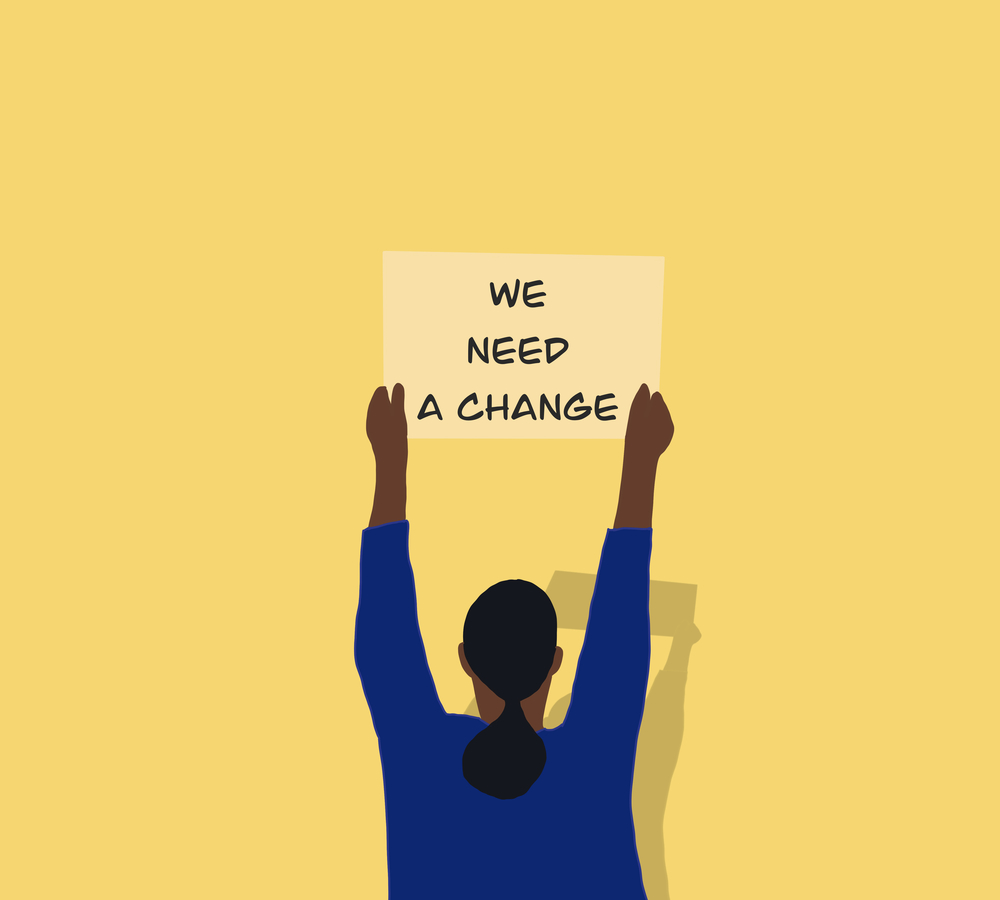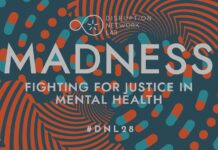In a significant departure from the traditional biomedical model, leaders of the Movement for Global Mental Health are now advocating for a rights-based, culturally inclusive approach to mental health care.
Highlighted in a recent Lancet article, this change in approach focuses on addressing social determinants, incorporating lived experiences, and embracing diverse cultural healing methods. The aim is to rectify the inadequacies of current systems by promoting community-centered strategies that respect and leverage local contexts.
The article, led by Vikram Patel, marks a notable shift from his previous work for the Lancet Commission on Global Mental Health. It reflects the advocacy of people with lived experience, Mad activists, and psychosocial disability advocates, as well as critical scholars, who have long argued for these inclusive approaches. This broader understanding of mental health moves away from a one-size-fits-all model, emphasizing the importance of local contexts and lived experiences.
“There is growing acknowledgment that a singular, structural challenge has been the narrow dichotomous framing of mental ill health through the prism of diagnosed mental disorders. This framework has dominated the field for around half a century, ever since psychiatry adopted a monocausal mental model, which shaped a reductionistic approach to nosology with substantial implications for prevention and care,” the authors write.
“One example of the consequences of this narrowed perspective is that, even though a wide range of social and psychological interventions are known to work for the prevention and care of mental ill health, medication is the most widely accessible (and in many populations, only accessible) intervention, in part fuelled by the collusion of the health-care system with commercial interests.”
The article outlines five transformative principles to revamp global mental health systems: addressing harmful social environments, moving away from diagnosis-based care, empowering diverse frontline providers, adopting rights-based care approaches, and centering those with lived experiences in all aspects of mental health care. By embracing these principles, the authors advocate for a holistic, biopsychosocial framework that not only challenges the dominance of the biomedical model but also proposes actionable policy recommendations. This approach aims to foster mental health equity and improve outcomes across diverse global contexts.
 The Movement for Global Mental Health (MGMH), initiated by the Lancet Group in 2007, has aimed to expand mental health services, particularly in low- and middle-income countries, by scaling up existing psychiatric treatments and closing the treatment gap. This movement has framed mental health as crucial for global development.
The Movement for Global Mental Health (MGMH), initiated by the Lancet Group in 2007, has aimed to expand mental health services, particularly in low- and middle-income countries, by scaling up existing psychiatric treatments and closing the treatment gap. This movement has framed mental health as crucial for global development.
However, critics, including people with lived experience, Mad activists, psychosocial disability advocates, and critical scholars, argued that this approach overlooked cultural contexts, social determinants, and local healing practices, often imposing Western biomedical models that were inadequate and potentially harmful in non-Western settings.
The recent Lancet article by Vikram Patel marks a significant shift. It aligns more closely with these critics by advocating for a rights-based, culturally inclusive approach that prioritizes social determinants and lived experiences over traditional biomedical treatments.
In their new article, Patel and colleagues note that traditional approaches that rely heavily on specialist interventions and diagnostic categories have proven inadequate to the challenge of the global mental health crisis. Despite significant investments, mental health metrics have not improved, particularly in high-income countries. They write:
“From a population perspective, there seems to be almost no correlation between the density of mental health professionals, proxies for clinical interventions, and the prevalence or incidence of mental illnesses.”
They explain that the history of psychiatry has long been dominated by a reductionist biomedical model, which views mental disorders primarily through the lens of biological abnormalities. This approach gained prominence in the mid-20th century, driven by the adoption of diagnostic categories based on clusters of symptoms observed in specialized clinics in high-income countries.
“Disappointingly, 50 years on, we still do not have a single biological finding that can be applied to diagnose any mental illness, nor a single new therapeutic agent or target for prevention. Yet, this reductionist framework continues to prevail, privileging certain types of providers (eg, mental health specialists), interventions (eg, medications), delivery settings (eg, hospitals), particular perspectives of recovery (eg, focused on clinical symptoms), and particular perspectives on research priorities (eg, focused on biological mechanisms). As a result, this privileging narrows the approaches in which psychiatrists and other specialist mental health providers are typically trained and accultured.”
However, this narrow biomedical model has faced criticism for its reliance on symptom-based diagnoses rather than concrete biological tests, which limits its applicability across diverse global contexts. Despite extensive research and substantial financial investments, no definitive biological markers for diagnosing mental illnesses have been found, nor have new therapeutic agents been developed. This has led to an overreliance on medications and specialized interventions, often at the expense of more holistic and culturally relevant approaches.
To this end, the Lancet article outlines five transformative principles aimed at overhauling global mental health systems to make them more effective, inclusive, and equitable.
- Target Harmful Social Environments Across the Life Course The first principle emphasizes the importance of preventing mental health issues and promoting mental well-being by addressing adverse social and economic conditions, such as poverty and inequality. These factors significantly impact mental health, and interventions like income support, food subsidies, and laws promoting gender equality can mitigate their effects. This approach prioritizes early intervention, particularly during childhood, to shape healthy development and mental health through supportive environments and reducing exposure to negative experiences like maltreatment and violence.
- Care is Determined by a Person’s Needs, Not Their Diagnosis The second principle advocates for a shift from diagnosis-based care to needs-based care. Traditional diagnostic categories often fail to capture individual experiences and unique needs. Instead, the staging model of mental illness, which recognizes different stages of mental health conditions, should guide care. This model allows for tailored interventions at each stage, focusing on the specific needs of the individual rather than fitting them into predefined diagnostic boxes.
- Empower Front-Line Workers to Deliver Evidence-Based Psychosocial Interventions The third principle calls for expanding the mental health care workforce to include non-specialist providers like community health workers, teachers, and peers. These front-line workers can effectively deliver brief psychosocial interventions within their communities, making mental health care more accessible and integrated with other services. Training and supporting these providers can improve early intervention, case management, and long-term support, addressing mental health needs more comprehensively and equitably.
- Embrace a Rights-Based Perspective for Mental Health Care The fourth principle focuses on eliminating discrimination and protecting the human rights of people with mental health conditions. This includes ensuring dignity, reducing stigma, and providing alternatives to coercion in mental health care. Strategies such as the WHO QualityRights initiative can guide efforts to protect rights, involve people with lived experiences in decision-making, and ensure legal protections.
- Place People with Lived Experience at the Centre of the Care System The final principle emphasizes the importance of involving people with lived experience in all aspects of mental health care. Their insights and experiences should shape the design, implementation, and evaluation of mental health services. This person-centered approach ensures that care is aligned with what matters most to those directly affected. It also involves supporting shared decision-making and promoting structural interventions like supportive housing and guaranteed income, which are crucial for holistic mental health care.
To implement this framework, four key policy actions are proposed: adopting a whole-of-society approach that involves various sectors beyond health to address social, economic, and ecological determinants of mental health; investing in nurturing environments and effective interventions from early childhood; ensuring the involvement of civil society organizations in promoting rights-based care; and fostering inter-ministerial collaboration and leadership at all government levels to prioritize mental health as central to human development and well-being.
The authors also advocate shifting from institutional care in mental hospitals to community-based services, integrating short-stay inpatient units within general hospitals for severe cases, and offering long-term support for those with enduring disabilities. Additionally, they argue that population mental health should be addressed through coordinated care models that include diverse providers like primary care physicians and community health workers.
They go on to suggest a shift in investment in mental health, with a recommended allocation of at least 5% of the health budget in low- and middle-income countries and 10% in high-income countries. This investment should support community and grassroots actions, build the front-line workforce, and train non-health professionals to promote mental health. Resources should be shifted away from cost-ineffective institutional care to evidence-based, community-centered interventions.
By advocating for a rights-based, culturally inclusive framework that addresses social determinants and empowers non-specialist care providers, the article reflects a departure from the narrow, reductionist biomedical model that has dominated psychiatry. It champions a holistic, community-centered approach, recognizing the profound importance of local contexts and lived experiences.
****
Patel, V., Saxena, S., Lund, C., Kohrt, B., Kieling, C., Sunkel, C., Kola, L., Chang, O., Charlson, F., O’Neill, K., & Herrman, H. (2023). Transforming mental health systems globally: Principles and policy recommendations. The Lancet, 402(10402), 656-666. https://doi.org/10.1016/S0140-6736(23)00918-2 (Link)















Very good development if the will is there to carry it through. The sentence … “… collusion of the health-care system with commercial interests”. Should read “collusion of the health-care system with organised crime”. Pharma has more than proven that it is in fact organised crime by this point.
Report comment
But a right’s based approach isn’t sufficient either, is it. The first thing to have is a fundamental UNDERSTANDING of the problem we call mental illness, and understanding is through perception, not through intellectualization or an accumulation of data. Who is the one that can begin to perceive and understand, purely objectively, the primary phenomena of the mental illness? Actually, it is us ourselves, and this is what I see.
The brain is a fantastically complex, incedable bit of machinary, a complete miracle of Mother Nature. Now, typically, brains in nature don’t go mad without some pathogen or some pathogenic process caused by an outside agency – exceptions include trauma, and no doubt there are other rare problems. But the brain of human beings have been subject to a vastly expanding, vastly complexifying, ever more demanding and insane and complex and contradictory social and historical totality that outwardly, we call civilization, and inwardly, we call the socially conditioned mind or brain. The brain has had to adapt to this radical change in the social and psychological environment and the fact that it is no longer capable of assimiating and adjusting to the blind, cancerously growing ever more demanding society is in the fact that not just mental illness has seen an astonishing rise, which psychiatric medicine plays a part, but also the rise of drug and alcohol addiction, the rise of self harm and eating disorders which are not generally caused by psychiatric medicine, the proliferation of porn and all manner of corrupt and vampiric behaviour, and the fact that out of our greed and confusion we can’t stop ourselves destroying the Earth and all our children’s futures, and we have created an insane society which then treats THEM, who are the fact, the actual, who are Mother Nature struggling but failing to adjust to this insane society, it treats THEM as insane, and itself as the expert. Expert in what? Confusing and ruining brains, because all of our brains have been confused and ruined, and all our emotions and instincts have been perverted and destroyed, by this disease process called civilization which is destroying the Earth, humanity, both within and without.
Now, we are not just thinking. We are seeing, feeling, aware creatures. Awareness cannot go mad – it is the simple capacity to see what is, to put it crudely. It is unbiased. It can never be insane. I’ve had the worst ‘psychosis’ you can imagine, but it isn’t a ‘psychosis’ because a ‘psychosis’ is an intellectual concept invented by psychiatry. I watched the non-ordinary psychological phenomena you call a psychosis and I find that awareness itself is the point of stability, of clarity, of invulnerability. The only challenge is that the experiences can be so overwhelming they can overcome this awareness and cause intense physiological and cognitive panic that sets of the uncontrollable urge to escape, but you can never escape your own consciousness, so that need to escape is pathological. But we would not need to escape if we had a supportive and understanding society who looked after us at such times, and made us feel safe and loved.
I want to suggest if every child is made to feel safe, loved, and free just to be what they are, they would never develop an addiction or mental illness, would never become violent or destructive, because these things come out of social trauma. If a dog is mistreated and becomes violent we blame it on the owners, but if a child becomes violent or an addict we blame them on themselves, and say they should be other then they are. But that is the most insane thing in the world, because each one of us is the fact, the actual, the truth, the real living example of an actual human being. Think how insane it is to believe intellectually thatt this reality, this irreducable fact, shouldn’t be what it is, and should magically be something other then it is, namely, what society thinks it should be. Now that is one insane, psychotic society.
All children, animals, and natural human beings are beautiful things, happy things, perfect things, gentle things. We destroy them with the products of social historical development which swell into a monstrous society that conditions the brain. Eventially that social and intellecual system, which is all one, destroys the Earth and the whole of humanity. What then? We will destroy ourselves as a civilization because it has now become a disease process destroying us all. But we needn’t destroy ourselves as natural human beings who love and care for one another, and who realize that all we need is food, love and each other, and that when all creatures love all creatures, all creatures will know security, and there will be no mental illness or addiction, and there would be freedom. But this requires the destruction of the social conditioning in the brain, the social process and it’s effects on the brain. This demands to be utterly free of the thought machine controling us. The psychosis can help you slip out of it’s grasp if we understand it as a society, but if we don’t, the psychotic is extremely lucky to escape from a psychosis without becoming either a twitching mass of cells, or a corpse. And if we let it, society will destroy Mother Earth, and it’s ruins will become her funeral mask.
No-one.
Report comment
I speak about it in more depth here. The problems in psychiatry demonstrate and help to explain the central crisis facing humanity and civilization as a whole. It is a crisis of consciousness… https://www.youtube.com/watch?v=7Cgut-cJk9Q
Report comment
Yes
Report comment
First things first:
Transforming ‘mental health’ can’t happen without a wholesale dumping of ‘bio-psychiatry’s’ bogus medical model which has to include its dumb-shit DSM as well as the now common practice of knee-jerk prescribing. And the only way this will happen is if people in society start to address the things mentioned above because goodness knows psychiatry will never do it.
Report comment
These are a lot of fancy words. But who with any real economic or political power will go along with these ideas?
Plus:
1) They show no real understanding of the mind (and consciousness, as mentioned earlier).
2) We have no track record of solving the problems of human-on-human violence, which is probably associated with point 1.
Report comment